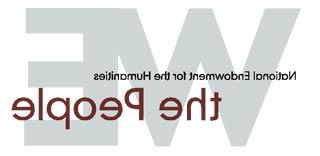Lessons
-
Lesson for Concept 1
Rights and Responsibilities of British Subjects
by Tim Castner, Nashoba Regional High School, Bolton, MAThis is designed to be a one-period classroom activity. Students work individually and in small groups to analyze documents and discuss the rights and responsibilities of Americans, past and present.
-
Lesson for Concept 2
Colonies Fight British Taxation
by Duncan Wood, Newton North High School, MAIn this activity, the class is divided into four groups. Each group is given readings and asked to summarize the type of political tactics used within the documents.
-
Lesson for Concept 3
The Emerging American Identity
by Robert Baker, Needham High School, MAThis is designed to be a one-period classroom activity. Individually, in pairs, or in small groups students can be assigned at least one historical quotation to analyze and present to the class.
-
Lesson for Concept 4
Conflict and Compromise
by Robert Baker, Needham High School, MAThis assignment is a thesis driven DBQ (Document-Based Question) and could be given to a student as a take home essay, or, if the class has access to a computer lab, can be administered to a group of students.
-
Lesson for Concept 4
To Pay or Not to Pay, That is the Question
by Jacqueline Fernandez, Graduate Education Intern, TuftsStudents will read and analyze documents, and host a mock trial in which a jury must decide whether or not individuals involved in throwing tea overboard in the Boston Tea Party broke the law and (if so) how they should be punished.
-
Lesson for Concept 5
Inciting Individual and Inter-Colony Resistance
by Victor Henningsen, Phillips Academy, Andover, MAThis is a three-to-four day unit for high school students, designed to help them understand how resistance to Parliamentary policies spread from individuals, to groups, to towns, and eventually to entire colonies.
-
Lesson for Concept 6
Revolutionary League Draft Picks
by Stacia Smith, Paxton Center Middle School, MAThis activity requires one to three class periods during which student groups representing the "Patriots" and the "Tories" draft players (actually historical characters or groups represented in primary source documents) to their teams based upon their professed or implied allegiance to either the Patriot or Tory cause.
-
Lesson for Concept 6
Seafaring Wanderers and Their Stories
by Jacqueline Fernandez, Graduate Education Intern, TuftsDuring one class period, this assignment will encourage and develop students' ability to analyze primary source documents, work in teams, and using the information extracted from a letter and newspaper article and guidelines provided, develop a hypothetical dialogue.
-
Lesson for Concept 7
Presentation and Analysis of Quotations
by Richard Kollen, Lexington High School, MAOver two class sessions, students will analyze quotations from documents that present ideas about independence and equality.
-
Lesson for Concept 7
Do You Know Your Audience?
by Jacqueline Fernandez, Graduate Education Intern, TuftsTwo class periods (not necessarily consecutive periods) are required for this lesson. After dividing the class into small teams students will be asked to imagine themselves as white, property-owning, male colonists who: support the colonial effort to gain independence from Britain and are eager to gain support for the effort from African Americans and/or women; and the assignment will be to create and act out a modern-style radio or television commercial to convey their cause.
-
Lesson for Concept 8
History is a Series of Decisions
by Siobhan Dennis, Lesley University, MAIn this activity, students will use primary source documents and will apply the concept of counterfactuals (What if? questions). Students will examine primary documents and create hypothetical situations of how the course of history could have been different based on some critical decisions. Students will express their thinking of how a look at counterfactual history can lead to a greater understanding and appreciation for the actual events that did occur prior to and during the American Revolution.
-
Lesson for Concept 9
Personalities, Perspectives and Agendas
by Teresa E. Collins, Boston College High School, MAThis assignment requires 2-3 hours, depending upon if the teacher utilizes all options. (This assignment may be divided into 2+ class periods, depending upon the time.) In this assignment, students, read and analyze documents, and work in groups to answer framing questions. Students also compare two documents and create an essay addressing the complex issue of point of view in history.
-
Lesson for Concept 9
Documents about the Boston Massacre and the Biases of their Creators
by Maria DiGioia, Graduate Education Intern, TuftsThis lesson requirse 1-2 class periods + 1 long-term assignment (optional). This lesson has been designed using documents related to the Boston Massacre, but it can be adapted to other topics as well. Since the optional long-term assignment will involve the study of documents from other events from The Coming of the American Revolution web site, presentations can be scheduled to coincide with the class periods when those events will be discussed.
-
General Lesson
Sample General Lesson using this website
by Tim Castner, Nashoba Regional High School, Bolton, MAThis lesson, aimed at college prep level U. S. History students, focuses on diaries of the American Revolution. The student is responsible for writing a journal comprised of three diary/journal entries based on events leading up to the American Revolution. The student is requird to imagine that he/she is living through these events and is either participating in them or observing them firsthand.



